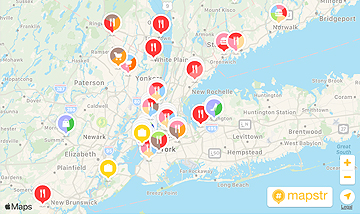Iran/nuclear issue/fight against terrorism/bilateral relations
Paris, July 30, 2015
FRANCE/IRAN/BILATERAL RELATIONS
Q. – You’re back from Iran, where you met the Iranian President and other political leaders. Are France and Iran finally reconciled?
THE MINISTER – It was a first, because it was 17 years since a French foreign minister had paid an official bilateral visit to Iran. And it’s true that a few days ago, with other countries, we signed the so-called Vienna agreement on the Iranian nuclear programme. And it made this contact necessary and even easier.
Now, it’s clearly only a first official contact. But I think it was a useful visit, because we talked about the Iranian nuclear agreement, we talked about the region – because the Iranians are very active there – and we also talked about our bilateral relations.
IRAN/ROLE IN REGION
Q. – And we’re also going to talk about those in this interview. Let’s begin with the region: it’s perhaps the subject where there’s still a lot of disagreement between France and Iran.
THE MINISTER – Yes, there are differences. The Iranians are active, directly or indirectly, in several countries. They’re active in Syria, because they’re supporting Bashar al-Assad; they’re active in Iraq; they’re active, in a way, in Yemen; they’re also active in Lebanon, through Hezbollah. And it’s true that we’ll see whether this nuclear agreement leads to a change in their position.
What we’d like, of course, is for them to work for peace and stability, and for the time being it’s not that easy. And we talked about this. We’re going to carry on talking, because one of the results of my visit is that from now on, the foreign ministers of Iran and France will have a political meeting at least once a year. But we hope Iran’s attitude moves towards stabilization and the search for peace. The Iranians are clearly very important in Lebanon too.
FIGHT AGAINST DAESH (ISIL)
Q. – Can Iran be a major support in the fight against Daesh [ISIL]?
THE MINISTER – Objectively, yes. In Iraq, for example, Shia Iran is fighting Daesh, and often with troops. But when I say “objectively, yes”, it doesn’t mean there’s a coalition, because they’re not part of the coalition.
Q. – And yesterday didn’t you get President Rouhani to say to you: “we’re going there, we’re going there with you”?
THE MINISTER – They want – they say it and I think it’s true – to fight Daesh’s terrorism, and clearly this kind of support can be useful. But they don’t want coordination of forces or joint organization.
We think the solution everywhere is political. Particularly in Iraq, which we were talking about earlier, there must be a really inclusive government, i.e. one made up of Kurds, Sunnis and Shias, and change may then be possible, because whether it be in Syria, Iraq or elsewhere, there must be governments that bring people together. And this was the argument I put to the Iranians.
NUCLEAR AGREEMENT
Q. – And so you met President Rouhani in Iran, but the Revolutionary Guards are also very active, and they’re pretty much the ones who hold power; will it be possible for the scenario to change?
THE MINISTER – I’ve no idea. There are several arguments. Firstly, there’s this nuclear agreement we reached: France was criticized for being very firm, but I stand by it. I think that when you’re talking about nuclear power, the question is whether or not they could get an atomic bomb. France showed constructive firmness, which was useful in the end, because everyone agreed on a text which is good.
Now, it’s true this is challenged by some elements, particularly the ones you mentioned. Among the Revolutionary Guards, some say: “but as a result, this will prompt the Iranians to change their whole regional policy”. I’m more cautious: in the immediate future I’m not sure there will be any change. But ultimately of course, with an economic recovery it may lead them to change. But the official statements for the time being show no international change.
FRANCE/IRAN/TRADE
Q. – Let’s talk now about France: you also went there [to Iran] as something of a travelling salesman for French businesses. What are Iran’s needs today?
THE MINISTER – Considerable. Iran has 78 million inhabitants, so it’s a very large country, and given the economic sanctions that have been in place for several years, it’s a country that is suffering and needs a lot of things; they say so. For example, they need trains that work, they need planes, food and equipment of all kinds. And France is well placed, because we had a presence in Iran for a long time…
Q. – That’s not what I’ve read…
THE MINISTER – Yes, but this is what I know – at any rate it’s what I’ve been told. For a long time, there was – to give you some rough figures – bilateral trade in the order of €4 billion, and today, it’s fallen to €400 million. So you see, there’s considerable scope. Our companies have a very good reputation, but admittedly for several years we’ve been prevented from working together, given the sanctions. So there are significant prospects, and in September a business delegation of 100 or so business leaders is going over there with M. Le Foll, who is in charge of agrifoods, and M. Fekl, who, with me, is in charge of foreign trade, and I think there are very good prospects. And I was struck by the very down-to-earth nature of my discussions with the ministers, and, on the French President’s behalf, I also passed on an invitation to President Rouhani to come to France in November.
Q. – Yet the Iranian authorities, to give a concrete example, said they preferred Volkswagen to Peugeots in the future.
THE MINISTER – I had a meeting with the Industry Minister and we spoke about Peugeot and Renault, and I’ll speak to the two groups’ directors about this. As far as Renault – which has just made an offer – is concerned, it was received positively. As far as Peugeot is concerned, the Iranian leaders are criticizing Peugeot for leaving, a few years ago, in a way that they’re protesting against. And so this may be more difficult, but I obviously argued in favour of our two groups.
TOURISM
Q. – A word on tourism as well. Are you telling French people that they should now go on holiday to Iran?
THE MINISTER – Until now, Iran was – as you know, we’ve got a map at the Foreign Ministry – coloured red and orange. In view of the fact that security over there is no less than in other countries which are classified as yellow, we decided to classify that country as yellow, which means that you can go there – and by the way it’s a magnificent country –, whilst of course exercising a great deal of vigilance.
All in all, it was a useful visit, which doesn’t mean we agree on every point. But a country like France must have regular contacts with Iran, which is one of the major players in that region. (…)./.














